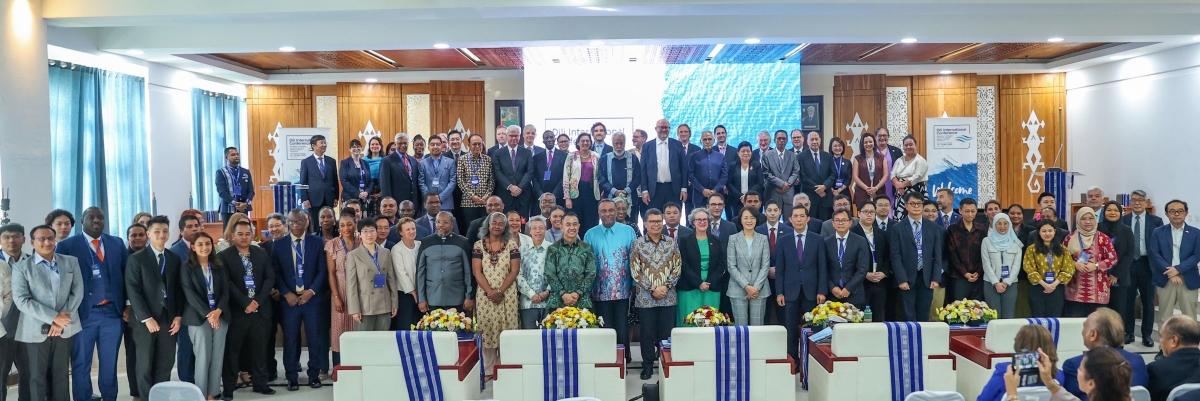Afghanistan’s Participation in the International Conference on the Law of the Sea

Afghanistan’s Participation in the International Conference on the Law of the Sea and Maritime Disputes
Dili, Timor-Leste – 15–16 May 2025: The International Conference on “Navigating Challenges: Law of the Sea and Maritime Disputes” was held in Dili, the capital of Timor-Leste. Hosted by Timor-Leste’s Land and Maritime Boundaries Office (LMBO), the event brought together high-level officials, international legal experts, diplomats, and representatives from United Nations member states, ASEAN countries, Pacific island nations, and g7+ countries, including Afghanistan.
The main objective of the conference was to examine the role of the United Nations Convention on the Law of the Sea (UNCLOS) in the peaceful resolution of maritime disputes and to strengthen regional cooperation. Timor-Leste shared its experience in resolving maritime boundary disputes with Australia as a model of international legal engagement.
Ambassador Wahidullah Waissi, the Ambassador of the Islamic Republic of Afghanistan to Australia, participated in the conference. Representing a landlocked country, Ambassador Waissi engaged in discussions and bilateral meetings on the importance of access to the sea, transit rights, and the use of international legal frameworks to facilitate trade and economic development.
On the sidelines of the conference, Ambassador Waissi met with H.E. Kay Rala Xanana Gusmão, Prime Minister of Timor-Leste. During the meeting, the Ambassador presented a handmade Afghan carpet woven by Afghan girls and women, symbolizing solidarity and resilience. This gesture reflected the cultural ties and shared values of justice, human dignity, and peace between the Afghan and Timorese peoples.
The Dili Conference reaffirmed Timor-Leste’s commitment to the principles of international law and peaceful dispute resolution, while providing a platform for dialogue, knowledge exchange, and enhanced regional cooperation.
As a landlocked country, Afghanistan signed the United Nations Convention on the Law of the Sea (UNCLOS) in 1983 but has not yet ratified it due to decades of conflict and instability. UNCLOS provides important rights for landlocked states, including access to and from the sea through transit arrangements. It is important to acknowledge the contribution of Mr. Abdul Samad Ghaus Tabibi, former Counsellor at Afghanistan’s Permanent Mission to the United Nations in the 1960s, whose active role in the UNCLOS III negotiations helped shape Part X of the Convention—securing transit rights for landlocked countries like Afghanistan.
Last modified on Thursday, 26/06/2025

